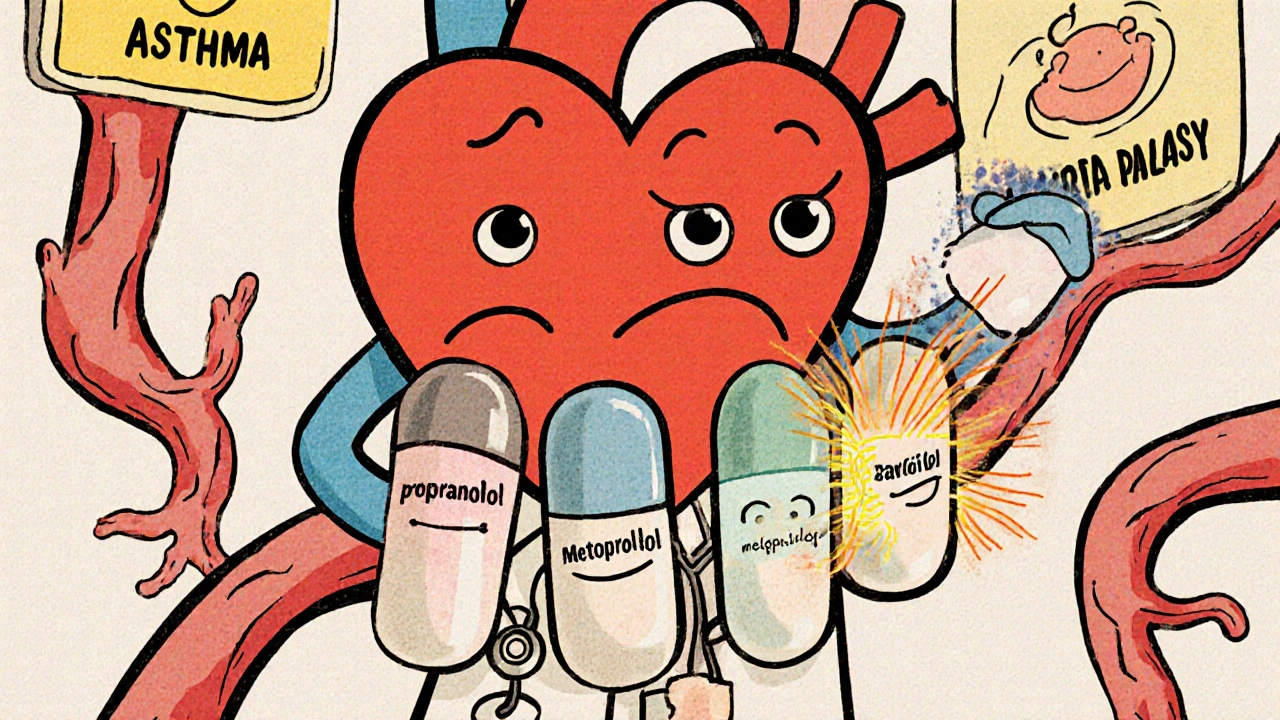Beta-blockers aren't all the same-each type has unique effects on the heart, lungs, and blood vessels. Learn how carvedilol, nebivolol, metoprolol, and propranolol differ, why drug choice matters, and what to watch for with side effects and interactions.
Metoprolol: What It Is, How It Works, and What You Need to Know
When your heart is working too hard, metoprolol, a beta blocker that slows heart rate and lowers blood pressure by blocking stress hormones. Also known as Lopressor or Toprol-XL, it helps your heart beat more efficiently without overexerting itself. This isn’t a cure, but it’s one of the most trusted tools doctors use to manage long-term heart strain—especially if you’ve had a heart attack, suffer from high blood pressure, or deal with irregular heartbeats.
Metoprolol doesn’t just lower numbers on a monitor. It reduces the physical stress on your heart muscle by blocking adrenaline’s effects. That means fewer chest pains, less risk of another heart event, and better control over your heart rhythm. It’s often paired with other heart meds like amlodipine, a calcium channel blocker that relaxes blood vessels or lisinopril, an ACE inhibitor that helps blood vessels widen. These combinations aren’t random—they’re designed to tackle heart problems from multiple angles.
People take metoprolol for different reasons. Some use it daily to keep blood pressure stable. Others take it after a heart attack to improve survival rates. Athletes and people with anxiety sometimes use it off-label to calm physical symptoms like a racing pulse—though that’s not FDA-approved. It’s not a quick fix. You won’t feel a difference right away. But over weeks, your heart starts working smoother, and your body adjusts. Side effects like fatigue or dizziness are common at first, but they usually fade as your body gets used to it.
What you won’t find in most doctor’s offices is how to talk about metoprolol with your pharmacist or how to spot when it’s not working. That’s where real-world experience matters. The posts below cover exactly that: how metoprolol stacks up against other beta blockers like atenolol or propranolol, what to do if you miss a dose, how alcohol affects it, and why some people switch brands. You’ll also find real stories about managing side effects, saving money on prescriptions, and what to watch for if your heart condition changes. This isn’t just drug info—it’s what actually helps people live better with heart conditions.

